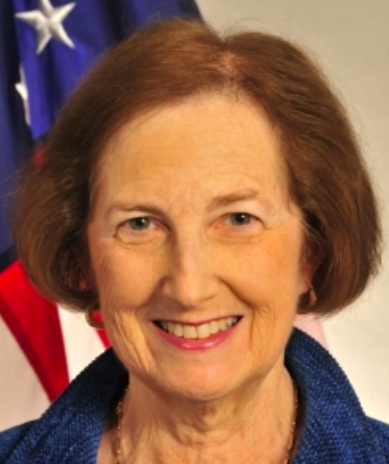
Lois Schiffer is one of the leading environmental lawyers in the United States, having served as the General Counsel of NOAA during the Obama Administration, and as the Assistant Attorney General for Environment and Natural Resources at the Justice Department during the Clinton Administration, as well as teaching environmental law at Georgetown Law for 30 years, during her more than 40-year legal career.
ODP: You were top environmental lawyer for the U.S. government during the Clinton Administration. What was the most important case you worked on?
LS: I had the opportunity to work on so many important cases with so many superb government lawyer both during my years at the U.S. Department of Justice and those at NOAA. Three very important cases: First –defending President Clinton’s Northwest Forest Plan—the plan developed by many federal agencies to end the stalemate on US Forest management in the Pacific Northwest by assuring environmental and species protection (keeping the spotted owl from extinction) and at the same time providing for sufficient timber for the industry to cut. Second – enforcing the clean air act against a number of power plants that were emitting vast amounts of excess pollutants that adversely affected public health and the environment. Third, at NOAA I worked extensively with many others to address the natural resource damages caused by the Deepwater Horizon oil spill.
ODP: When you think about all the environmental laws that the Trump Administration is not enforcing now, what worries you the most?
LS: Most troublesome is the Trump Administration’s approach to the rule of law generally—we are a country of laws that we expect people to comply with for the common good, and the Trump Administration flouts that approach. Without good enforcement, companies and people do not have the incentive to comply with the laws that protect our air, water, land, species, fisheries, national parks. I worry especially about protecting the 30% of our nation’s lands—the public lands that belong to all of us—our national parks, open spaces, national forests. Also, not enforcing the laws that protect us all against pollution will undo the hard work of years to clean up the water in our rivers, the air we breathe, the land we walk on and live near. A recent study linked here demonstrates the Trump Administration drop-off in enforcement of the pollution statutes. The Administration is reversing efforts to begin to address Climate Change by changing the rules, failing to enforce rules, and mocking efforts at developing resiliency.
ODP: The country’s environmental laws operate on the assumption that polluters should pay when they violate environmental laws. Why is this such an important principle?
LS: If we want clean air, water, and land then someone has to pay for pollution control equipment and cleanup. If companies consider using our rivers—a public resource—for a private sewer, then the public is subsidizing that company’s dirty operation. “Polluter pays” is a principle to get companies and people to pay to use the public resource for their private company purposes. Same for putting pollution into the air. If the polluter has to pay, the companies have a big incentive to create less pollution. If the polluter doesn’t pay, there is no deterrence, and the public—you and me and all of us—have to pay for the cleanup of our public resource. That isn’t efficient and it isn’t fair.
ODP: The Trump Administration recently said that it believes in compliance assistance for industry rather than enforcement. Why is this insufficient?
LS: Think about it—if we said to you we will help you fill out your tax forms, but nothing bad will happen if you don’t pay your taxes (compliance assistance but no penalty) would you pay your taxes year after year? Not likely. Compliance assistance—what are the laws and how can you comply with them—is useful for small companies and individuals; big companies have plenty of expertise already. For everyone, the incentive to use compliance assistance is encouraged by knowing that failure to comply brings a penalty, and in a sound system, a penalty that costs more than it would have cost you to comply in the first place—a deterrent penalty. It is just common sense about human behavior.
ODP: You are one of the most admired environmental lawyers in the country because of your decades of public service. Looking back at all you accomplished, what are you most proud of?
LS: I’m most proud of having the opportunity to encourage and mentor people to care about the environment and use our nation’s environmental laws with integrity and excellence to protect it. I’ve been able to touch the lives of so many people to assure we can breathe clean air, fish in clean rivers, and hike in our national parks and monuments. What a privilege.
Thank you, Lois, for sharing these insights with our readers and for your long career protecting the environment and conserving our country’s public lands and waters.
March 22, 2019 » enforcement, Justice Department, pollution, public health, public land


